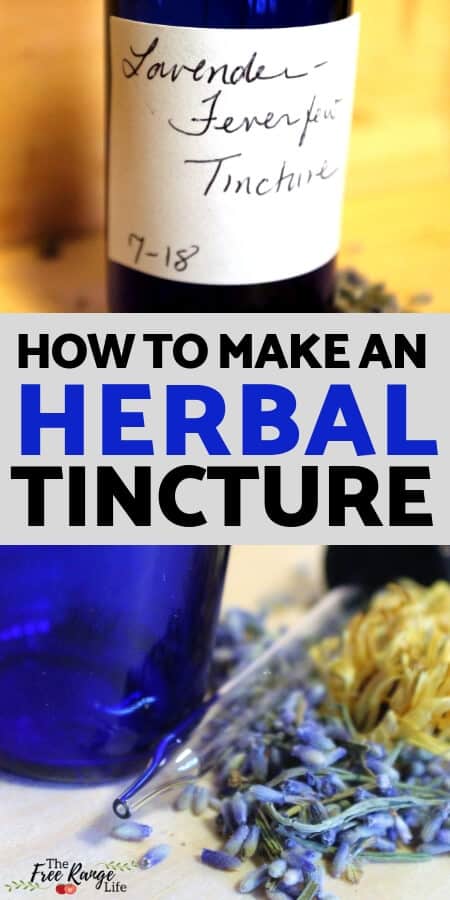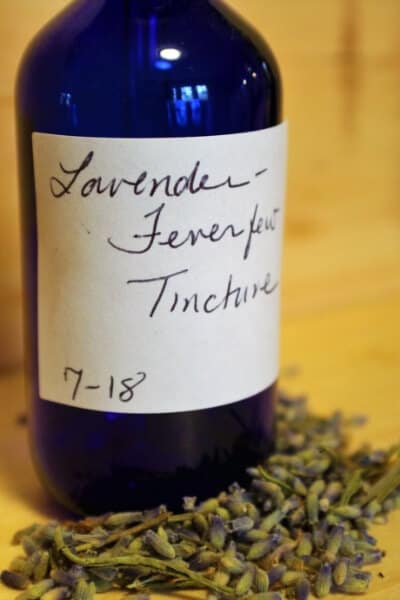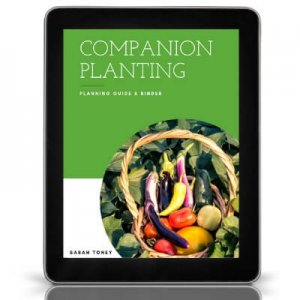In this article: Learn how to make a tincture using your own fresh or dried herbs- including alcohol based tinctures and non-alcohol.
When I was about 17 or 18 years old my world came crashing down. And as a result I was left in a very anxious and depressed state.
This site contains affiliate links. If you make a purchase using one of these links, I may earn a commission. Please see my disclosure page for more information about cookies collected and our privacy policy.
I had been seeing a counselor and had tried taking medications, some of which made my symptoms so much worse. But mostly, it just didn’t sit well with me. I felt like I was poisoning my body in order to live.
During a summer visit with my aunt, who at the time would have been considered a major hippy, she told me about tinctures.
It wasn’t until years later that I actually remembered what these little bottles did or what they were called, but I have always remembered buying these super expensive bottles, that tasted horrible, and I dropped under my tongue several times a day.
But you know what, they worked. And now years later, I couldn’t tell you what herbs were in these blends or the brand I bought, but I can tell you that they worked to ease my anxiety and help lift my mood.
Today tinctures are much more common, they are sold in health food stores all over and even on Amazon.
What is a Tincture?
So now that I’ve told you my first experience with tinctures, let’s talk about what a tincture is!
Tinctures are very concentrated herbal extracts. They are also one of the most popular ways to take herbal medicine internally.
They are made using a solvent, usually high proof alcohol, though some use apple cider vinegar or vegetable glycerin.
These tinctures, especially those made in alcohol, have a very long shelf life and are a an easy and convenient way to use herbal remedies.
How to Make a Tincture with Herbs
Now let’s talk about how to make your own tincture.
When I first was introduced to tinctures, they were expensive. Or at least to my young adult mind they were. But they are so easy to make at home and have such a long shelf life, that it make sense to learn how to make your own tinctures.
Here’s what you need to get started making an alcohol tincture:
A glass jar with lid
80 proof alcohol (at least)
Your chosen herbs- chopped
Once you have all of your supplies, it’s time to make a tincture!
Start by filling your jar with your herbs about ½ way full. I prefer to use dry herbs, because there’s less moisture that could potentially compromise the tincture.
You can use fresh, but wilted herbs if you wish.
Cover the herbs with alcohol. You want the herbs to be covered by 2-3 inches of alcohol.
You may have to add more alcohol once the herbs settle to be sure there is at least this much alcohol above the plant materials.
Place a lid securely on the jar.
Now it’s time to wait and infuse!
Set your jar in a warm spot on the counter. Somewhere you will see it every day and not forget about it!
Shake the jar 1-3 times per day as you remember, this isn’t a make it or break it thing, so if you forget it’s okay. But shaking helps keep the all plant matter’s surface area in contact with the alcohol, keeps it from settling on the bottom, and keeps it thoroughly mixed.
Your tincture will take 4-6 weeks to finish. It’s okay to let it infuse longer, but not any sooner than 4 weeks. If you are like me and tend to forget then you should write a reminder. Set a reminder on your phone, write it on the calendar, or simply mark the jar with a date.
When the 6 weeks is up, it’s time to strain out your herbs.
I use a funnel lined with cheesecloth to strain out my herbs. Place the cheesecloth over the funnel and pour out the contents of the jar.
You can simply store your tincture in a mason jar, but it is recommended to use a dark amber or blue bottle. I like to use 2-4 oz dropper bottles since it make dosing and application easier.
Make sure to label your bottle with it’s contents and date it for when it was made. Store in a cool, dry, place. In the cabinet is great! It should keep for years!
Related Reading: How to Make and Use Calendula Tea
How to Make a Tincture Without Alcohol
The alcohol content in tinctures isn’t very high, you will only consume 1-2 teaspoons per day maximum, but for those who can’t or won’t consume alcohol, you can also create a tincture that is alcohol free.
To make a tincture without alcohol you can use vegetable glycerin or apple cider vinegar. They are not as potent as alcohol based tinctures, but are still very good and are a great option for children or adults who can’t consume alcohol.
To make a glycerin or ACV tincture, follow the same directions as above, simply substitute the alcohol. Though if you are using ACV, don’t use a metal lid.
These non-alcoholic tinctures do not store as long as alcohol tinctures, but glycerin based tinctures should keep 1-2 year under optimum conditions and ACV tinctures 6 months-1 year.
What to Use a Tincture For
Tinctures can be used for so many uses! Such as:
Liver support
Emotional and mood support, such as for anxiety or depression
Hormonal support, such as for menopause or PMS
Immune support
Allergy Support
Basically, any condition, acute, chronic, or otherwise can be supported with tinctures.
Usually the dosage and protocol will depend on the herbs used and the condition you are using it for.
Rosemary Gladstar’s book: Medicinal Herbs: A Beginner’s Guide has some good recipes and instructions for various tinctures. And I highly recommend that book for any beginning, or not so beginner, herbal enthusiast.
Related Reading: 12 Amazing Benefits of Chamomile Tea
Disclaimer:
Herbs are powerful, and you need to treat them seriously. Follow the direction of your herbalist or use tested recipes from trusted sources.
Different herbs have different properties and different indications. There are some herbs that are safe for general usage and some that have safety precautions such as only use for a certain period of time before discontinuing use.
Use common sense, and know your herbs. Do your research.
The information provided on this site is for educational purposes only. I do not prescribe, diagnose or treat any medical conditions. Please consult your health care provider before implementing any of the information provided on this site.
The information provided on this site is completely my own opinion and does not reflect the opinions or beliefs of any other entity.
Any statements or claims regarding health benefits of foods, supplements or essential oils listed on this site have not been evaluated by the FDA and are not intended to treat, cure or prevent any disease.




